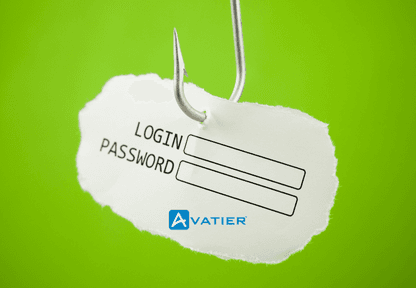August 26, 2025 • Mary Marshall
KBA Best Practices: Effective Question Design with Avatier Writer Assistant
Enhance your Knowledge-Based Authentication strategy with Avatier. Discover effective question designs to improve user experience.
The need for robust security protocols is paramount. Knowledge-Based Authentication (KBA) remains a critical component in verifying user identities, especially in industries requiring high security such as financial services, healthcare, and government. However, the efficacy of KBA hinges on the careful design of security questions. Avatier, a leader in identity and access management solutions, provides insights into creating effective KBA questions that balance security and user experience.
Understanding KBA
Knowledge-Based Authentication is a technique that relies on information only the user should know. It serves as a secondary verification layer, often complementing password-based security. The challenge with KBA lies in selecting questions that are simple enough for the user to remember but difficult for attackers to guess or research.
Effective KBA Question Design
Relevance and Personalization: Questions should be relevant to the user’s personal experiences but not easily searchable online. For example, asking about a user’s first pet name may be effective but is less so if that information is publicly available.
Complexity: It’s crucial to strike a balance between complexity and usability. Questions like “What was your favorite subject in school?” offer a good level of complexity without becoming too burdensome for users to recall.
Dynamism: Static questions are more prone to social engineering attacks. Consider questions that can change over time, like “What was the last concert you attended?”
Quantification: Where possible, use questions that can be answered quantitatively. Quantitative questions, such as “How many cars have you owned in your lifetime?”, are less likely to be guessed correctly.
Avatier’s Approach to KBA
Avatier’s solutions stand out for integrating automation and AI-driven technology ensuring that identity verification is both seamless and secure. By leveraging Avatier’s Identity Management Anywhere, businesses can efficiently manage user identities across diverse platforms — a necessity in maintaining robust security standards.
Statistics Supporting Strong KBA Practices
According to a recent study by Ping Identity, 80% of data breaches involve weak or stolen credentials, reinforcing the need for strong authentication mechanisms like KBA. Additionally, Okta found that deploying multi-factor authentication, which can include KBA, mitigates 99.7% of identity-based attacks.
Avatier’s Key Differentiators in KBA
Automation: Avatier’s identity management suite utilizes automated workflows to streamline the user verification process. This reduces administrative burden while enhancing security. For more details, visit Avatier’s User Provisioning Software.
AI-Driven Enhancements: By incorporating AI into its identity management solutions, Avatier can predict and prevent potential security threats before they materialize. This proactive security stance is detailed further in Avatier’s Identity and Access Management Resources.
Self-Service Capabilities: Avatier empowers users with self-service options, reducing the need for helpdesk interventions and improving user satisfaction. Discover how Avatier accomplishes this through their Self-Service Identity Manager.
Conclusion
Incorporating effective question design in Knowledge-Based Authentication can significantly enhance an enterprise’s security posture. Avatier not only provides the tools necessary for robust identity management but also offers insights into optimizing security questions to stay ahead of potential breaches. As threats evolve, so too must our strategies to combat them. By choosing Avatier for your KBA and identity management needs, you’re selecting a partner committed to innovation and security excellence.









